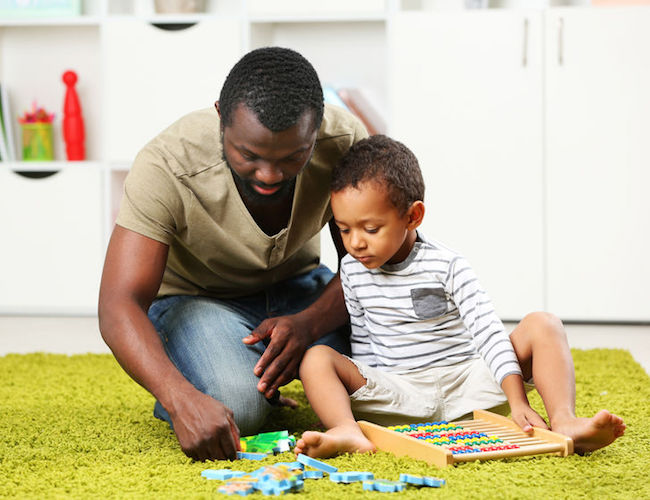The importance of puzzle play for teaching problem solving skills to toddlers
It’s vital in helping young minds develop cognitive and emotional skills while teaching them perserverance, patience and creativity.
As parents, it’s our responsibility to teach our children how to solve problems by themselves – and during the early years, this is largely done through play.
Puzzles in particular, are a great option for encouraging problem solving skills in toddlers and pre-schoolers.
“A child’s main tasks during the first three years of life are to master the world through movement, to learn language and other cognitive skills, and to feel mastery and a sense of accomplishment,” says Meg Faure, childcare expert, occupational therapist, and author.
“Children work very hard to achieve these goals – and this is largely done through play.”
“Puzzles are a brilliant game for this age,” she says. “Your toddler will learn about shapes, colours, and spatial form.” Puzzle play encourages the development of a wide array of physical, cognitive, and emotional skills, as well developing social skills when built together with a parent, sibling, or friend.
It encourages your child to think creatively and to exercise patience; instead of getting frustrated and giving up when faced with a challenge, they learn to persevere until they come up with a suitable solution.
Solving puzzles now helps problem solving later
Along with teaching your toddler important problem solving skills, building puzzles also helps to improve your child’s hand-eye coordination and fine motor skills, which can later lead to better handwriting and typing skills.
Puzzle play also aids the development of important cognitive skills, such as shape recognition, colour recognition, and memory skills.
Critical thinking comes into play when your toddler is faced with the fact that a puzzle piece either fits or it doesn’t – and they then have to make use of their problem- solving skills to find the correct pieces and solve the puzzle.
Little parts for little hands
While playing with puzzles is invaluable for brain development and learning to complete a task, puzzles are also great for fine motor coordination.
Start your baby off with simple peg puzzles and by the time they are four, they should be able to complete a 50-piece puzzle with a little help. Puzzles are invaluable in helping them to hone their fine motor skills.
“Playing with puzzles, blocks, and other colourful toys teaches essential concepts for school, such as number, shape, and colour concept,” Faure adds. It’s vital that your little one has access to a variety of puzzles, books and other toys so that they can explore and experiment with as much as possible while learning.
IMAGE CREDIT: 123rf.com



